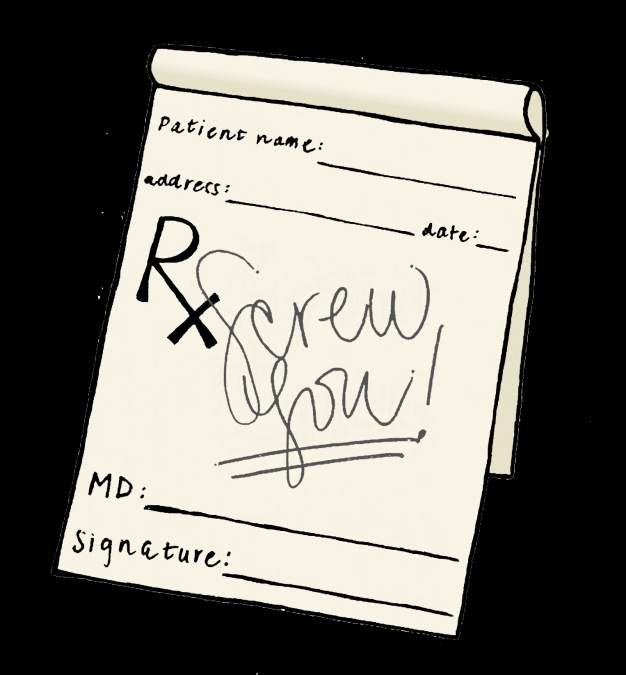An Afghanistan/Iraq vet faces a life sentence for less than an ounce. Thanks, Oklahoma.
The Good
Oregon has joined Alaska, Colorado, D.C., and our own great state in the Brotherhood of Ganja, officially legalizing marijuana on July 1. In several ways, the Oregonians are doing it better than us, allowing home grows (four plants each), setting the tax at 17 percent (as compared to our newly lowered but still obnoxious 37 percent excise tax), expunging the records of those with cannabis convictions, and even letting citizens fly with weed within the state. Oregon also allows the most pot per person of any of the legal states: up to half a pound of Grade A herb (eight ounces) as compared to our paltry single-ounce (or 28-gram) limit. Adults 21 and over can carry up to an ounce of cannabis and have a pound of edibles in their homes, as well as 72 ounces of cannabis-infused liquids. To get a sense of how much weed you can possess, the Portland Police Bureau’s handy reference guide compares chronic quantities to the city’s famous Voodoo donuts.
As for buying weed at a retail outlet: Not so fast, Portlandia. Because of bureaucratic red tape (green tape?), Oregon’s recreational stores may not be up and running until fall 2016. Governor Kate Brown is considering signing a law that would allow sales of recreational cannabis by existing medical dispensaries to begin October 1. Of course, Rose City residents are always welcome in Rain City if they’re running low in the meantime. Visitors will have to smoke all their legal ganja before they head back to P-Town, however: Ya can’t bring cannabis across state lines in either direction.
The Bad
Rush Limbaugh. Just the mention of his name can make you throw up in your mouth a little bit. The Great Bloated Reefer Madness Fiend was at it again last month on his why-is-this-still-on-the-air radio show.
“I don’t have any experience with this so I’m unable to render an opinion,” said Limbaugh. “Maybe I should go smoke some and find out what this is all about and be able to render an . . . [indecipherable mumbling]Oh, yeah, eat a brownie. That’s what ‘wake and bake’ means, right? Yeah, there’s an NFL player who had a Snapchat or Instagram post. He woke up and he’s all happy, and said, ‘Time to wake and bake,’ and somebody said, ‘Wow, that guy does the weed.’ So that’s what wake and bake means. Bake some cookies or brownies, I guess. Have you had them? . . . [heavy breathing]What do they taste like? . . . [more gasping, munching sounds]I do wonder what they taste like.”
OK, a few notes and we’ll move on. First, “waking and baking” is not about edibles—“baking” is a reference to adding a heated element, such as fire, to cannabis, then inhaling through a device. Secondly, the “waking” part of a wake ’n’ bake, in stoner’s parlance, means rising each morning and taking a hit off a pipe or bong. Lastly, Mr. Limbo, I highly suggest, if you truly haven’t already, trying some of the wacky weed. Unlike the oxycodone you so covet, it’s not addictive, and might even calm you while the last of your rapidly dwindling minions abandon your show.
The Very Ugly
It bears repeating that, until marijuana is legalized federally, hundreds of thousands of Americans will continue to be arrested for possession of the plant, and our veterans and loved ones will not have access to its medicinal properties.
In our least favorite state, Oklahoma, Marine veteran Kris Lewandowski is facing a life sentence for possession of less than an ounce of weed—which he was using to help cope with PTSD. Lewandowski, who served three combat tours of duty that included stints in Afghanistan and Iraq (thank you for your service), was attempting to wean himself off a fistful of pharmaceuticals that he’d been prescribed for a variety of ailments, including severe PTSD after being honorably and medically discharged from the Marine Corps.
In June 2014, neighbors called the police after Lewandowski had what his wife described as a PTSD flare-up. Comanche County sheriff’s deputies responded to a report that Lewandowski had been chasing his wife with a knife. Cops searched the house, finding six small cannabis plants that did not total a single ounce; in Oklahoma, that’s bad news no matter how many tours you’ve served. Among other offenses, including a disputed domestic-violence charge, the war veteran and father of three was charged with felony marijuana possession and cultivation, and could potentially serve a life sentence under Oklahoma’s draconian weed laws.
Both Kris and his wife Whitney were arrested and charged with felonies, and were told their children were being taken to Child Protective Services. The police told Whitney her kids could avoid that fate—and she’d avoid the felony charge—if she pressed assault charges. Though she opposes the domestic-violence charge, she understandably took the deal. “They’re trying to use me as a victim and to make it look worse on his case,” said Whitney in an interview with Truth in Media. “My husband has absolutely never laid his hands on me ever. He is not an abusive man, ever . . . quite the opposite. He is extremely doting.”
Since the arrest, the family packed up and moved to California (with the Oklahoma DAs approval), where Kris legally obtained a medical-marijuana card to treat his PTSD. After inadvertently missing a court date—while under supervision at a Veterans Administration psych hospital!—Lewandowski was arrested in a guns-drawn raid as he was picking up his kids from preschool. The veteran is currently in police custody at the Orange County Jail, where he awaits extradition to Oklahoma to face his charges. There’s a GoFundMe campaign for those wishing to help with the family’s legal defense, as well as a Weed for Warriors Project. Lewandowski’s next hearing is scheduled for July 22. #SupportOurTroops.
UPDATE (July 20, 2015):
According to the Weed for Warriors project, all felony charges have been dropped against Marine veteran Kris Lewandowski, he has been released from jail, and the remaining charges have been transferred to veteran’s court. Lewandowski had been charged with marijuana possession which he had been growing to treat his PTSD. Under Oklahoma’s sentencing guidelines, he potentially could have served life in prison for the possession and cultivation of cannabis.





